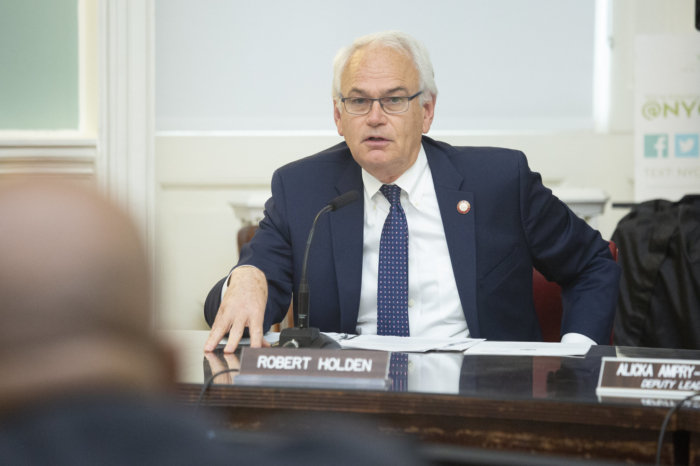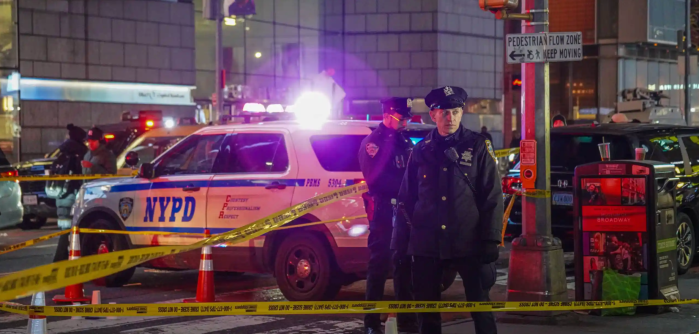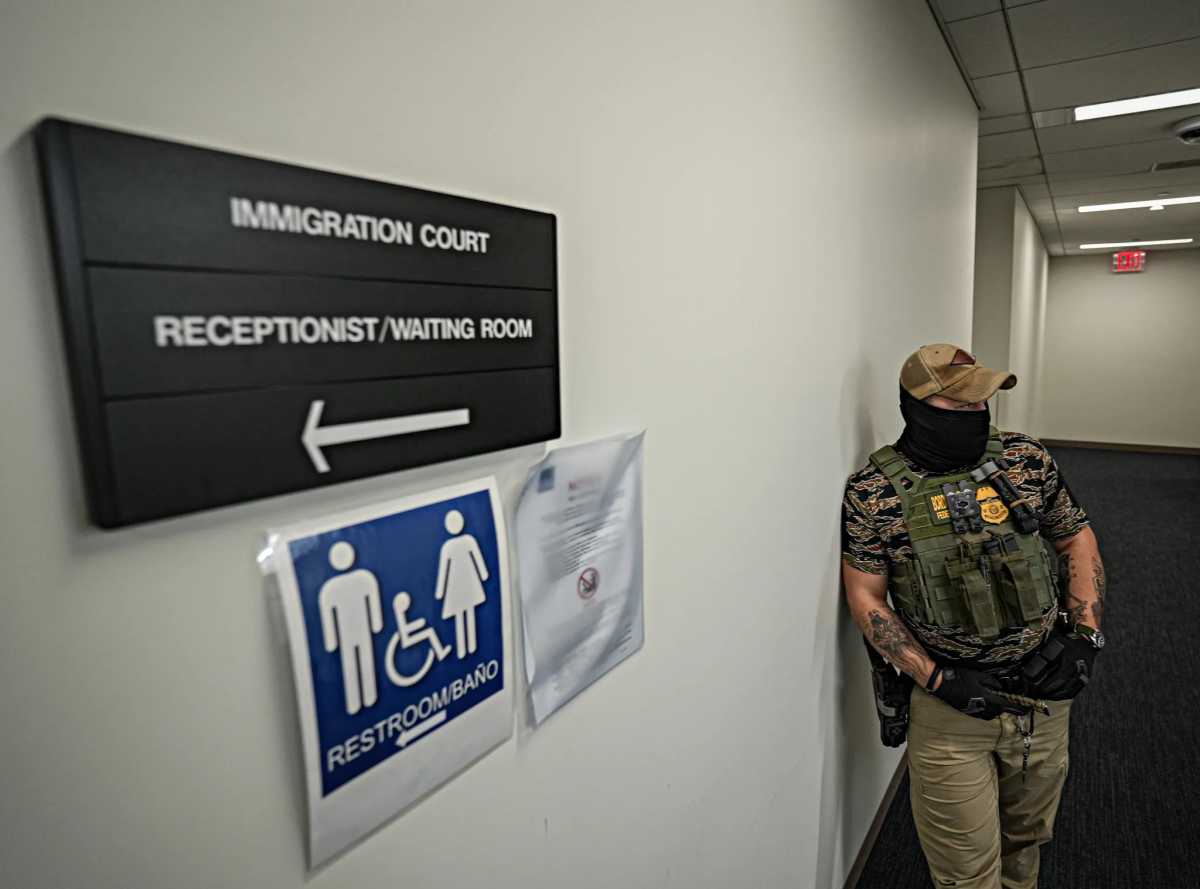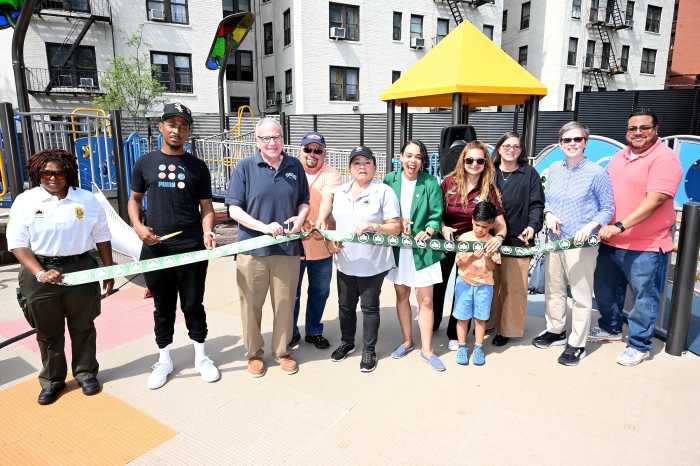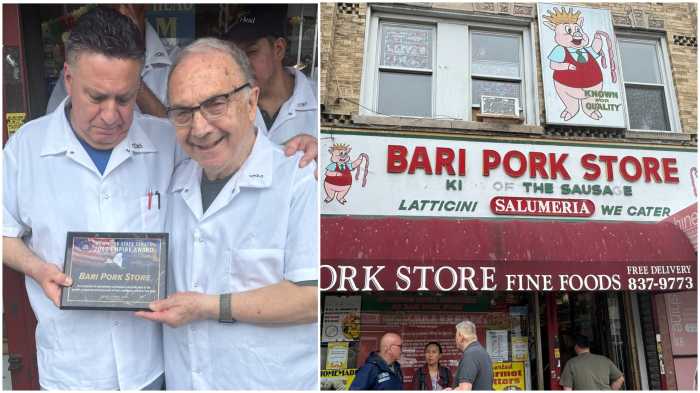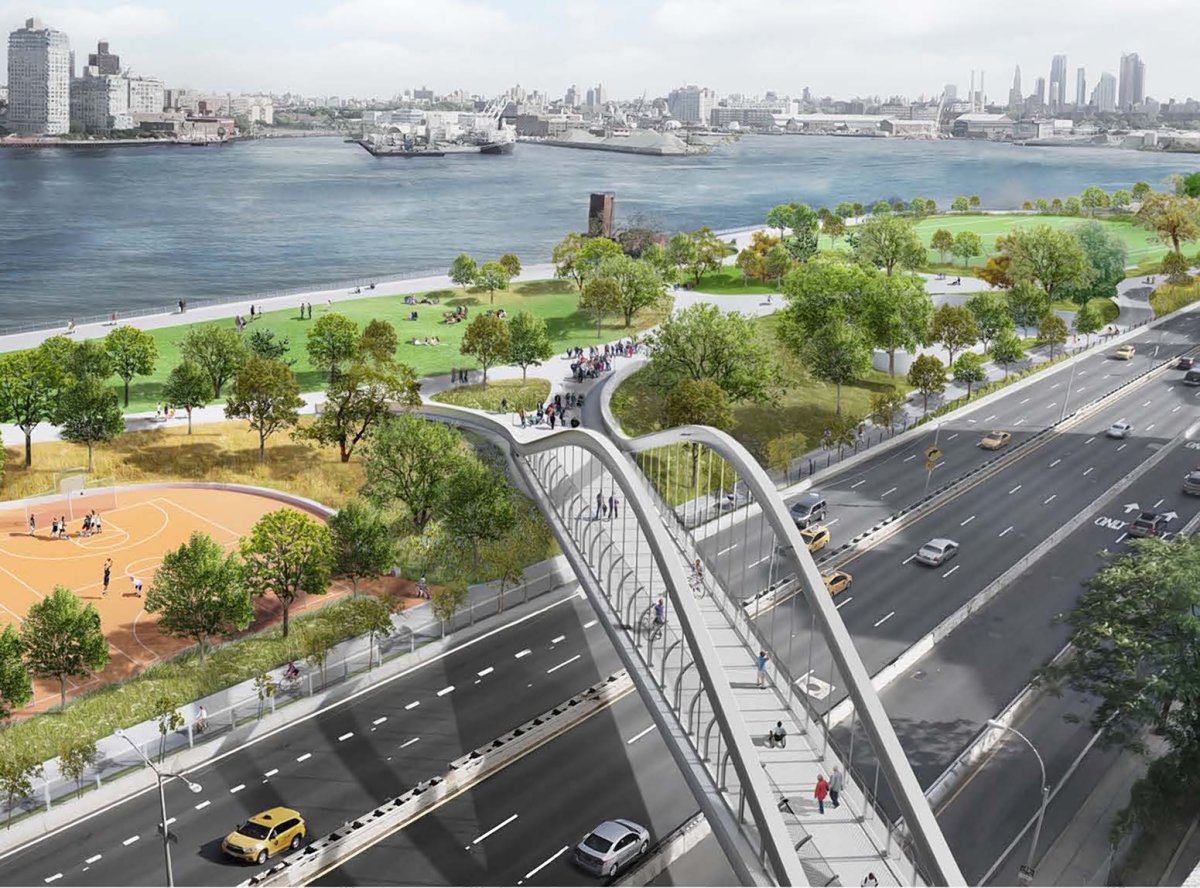
BY ALEJANDRA O’CONNELL-DOMENECH | The city’s $1.45 billion East Side flood protection plan is one step closer to becoming a reality after the New York City Planning Commission voted to approve the East Side Coastal Resiliency project (ESCR) on Monday.
“The ESCR project responds to one of the most pressing issues that the city and the globe is facing, seven years after Sandy parts of our city are still recovering from its devastation including areas that would be protected by this project,” said City Planning Commission Chair Marisa Lago. “This application is a pivotal step in protecting nearly 200,000 New Yorkers in Lower Manhattan and includes tens of thousands of residents living in public housing.”
The ESCR was proposed after Hurricane Sandy and is an effort to protect lower Manhattan from flooding and rising sea-levels attributed to climate change.
The plan calls for strengthening 2.4 miles of coastline from Montgomery to East 25th Streets by creating a series of flood walls, levies, reconstructing bridges at Delancey and 10th Streets, while also raising East River Park by 8 to 9 feet by placing piles of dirt on top of the existing landscape.
During the hear, members of East River Action, held signs reading “No!” and “Save our lungs, no landfills.” The East Village/Lower East Side community group has repeatedly opposed the plan since it would cause the park to temporarily close for three and half years. Although the group does support the city’s plan to use flood walls, levies and berms.
The vote comes two days after hundreds of East River Park users took part in a fake burial of the ESCR plan to protest the park’s closure. Protesters also expressed concern about the impact that dropping tons of dirt to raise the park would have on neighboring community members. Other expressed outrage that hundreds of park trees would be destroyed as part of the plan.
“Voting to approve the project with the understanding that it requires the still multi-year closure of the park is not a decision made lightly,” said Lago. “ Parks and open space are essential to the vibrancy and health of a community. East River Park is not only a place for active and passive recreation but also gathering space for the community.”
For opponents, the park’s closure means a loss of community.
As the plan heads towards the final stages of the ULURP process, it waits approval from City Council and then the Mayor. According to Curbed, construction on the ESCR is set to start in March of next year.



